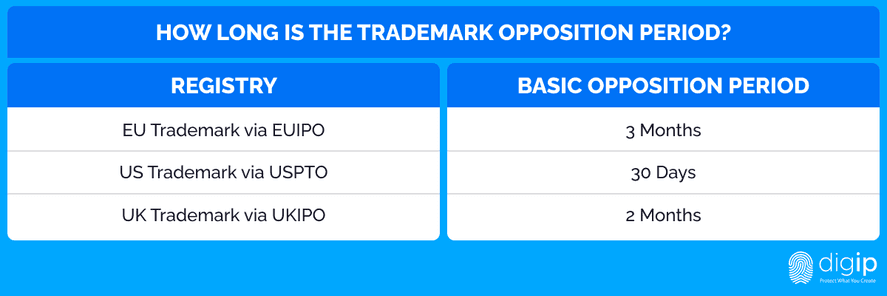
- Trademark
Can I Trademark My Name? A Guide for Influencers, Artists, and More
If you're a public figure, it's likely that you've never considered trademarking your name. But if you're growing your audience or plan to branch out into other forms of business, it's a good idea to protect the brand and personal name that you've worked so hard to build.
Some of the world’s most influential personalities have trademarked their names, including Beyoncé and Bruce Springsteen. They understand that their success is tied up in their personal brands, and they want to ensure that no one can use their names or likenesses without permission.
Why Trademark Your Personal Name
If you work in the public eye, your name is your livelihood. Whether you go by your legal name or an artist name, registering a trademark can have very practical benefits.
When you trademark a name, your name becomes an intellectual property asset. You secure the exclusive right to use your name in your industry and the ability to oppose infringement in court. This can deter those who would want to exploit your reputation for gain, such as impersonators and others who might try to unfairly capitalize on your work.
A registered trademark also provides legal defense against cybersquatters, or people who buy domain names related to other people’s trademarks—or names—and try to sell them back at an inflated price.
While filing for a trademark may seem like an unnecessary step at first glance—after all, why would someone else want to borrow your name when they could just come up with something new?—the truth is that trademarks are crucial in any industry where competition is fierce and brands need to stand out from each other.
Who Can Trademark Their Name?
Trademarks are typically associated with big companies and huge personalities, but they can also be helpful for creative professionals and influencers.
For example, if you are an author or artist and want to prevent others from using your name to sell work that isn't yours, then you might trademark your name.
You could also trademark your stage name if you are a musician or entertainer. This would mean that no one else could use your stage name for their own performances.
If you are an online influencer, trademarking your name can help prevent others from using it to promote products that you do not endorse and protect you from impostors trying to benefit from your popularity.
You don't have to be famous to trademark your name. If other people recognize your name as being associated with a product or service, then it may be considered distinctive enough to qualify as a trademark.

Trademark Rules for Names
While trademarking a personal name isn’t too complicated, your mark will have to pass more evaluation criteria to get approved. You can use these rules of thumb to assess whether your name is ideal for registration or not.
As for any mark, your name should not conflict with any existing trademarks or pending applications. For example, the name "Taylor" can be confused for Taylor Swift, and so may not be a good choice if you want to trademark your name as an influencer or celebrity.
It should also be distinctive in phonetics, spelling, and stylization. A very common name cannot be trademarked.
If your desired mark includes a last name, there is also a risk that your application will be refused on the grounds that it is “primarily merely a surname.” A personal name cannot be trademarked if its sole purpose is to identify you as an individual. It must have a secondary meaning.
You must be able to prove that your name has become distinctive to consumers over time—be it through frequent exposure in the media, strong presence in commerce, or other means. For trademark registration purposes, your name can be assumed to have a secondary meaning after five years of continued and exclusive use in the market.
Trademark law and guidelines for names vary between regions and registries like the USPTO, WIPO, et cetera. Get familiar with the specific requirements of your target registry before you file your application.
How to Trademark Your Personal Name
Whether you do it yourself or enlist the help of a trademark expert, there are a few things to consider before filing your application.
DIY filing can be a good option if you have the time and patience to do it right. You should make sure that your application is thorough and accurate, since mistakes could cost you time and money in legal fees later on. If you need help with the process, hiring a trademark attorney or intellectual property firm can help ensure that everything goes smoothly.
1. Scope Out the Market
Start with a trademark search to check for any conflicts with previously registered entities. You should also run searches on Google and social media to see if anyone in your area is already using a similar name to market their goods or services. If you spot a conflict, you may have to make your trademark more unique.
2. Accomplish and File Your Application
Identify the goods or services that you want to connect with your name. These can be anything from entrepreneurial publications, books/paintings, and entertainment services—whatever best fits your professional niche. For your trademark application to be successful, these need to fall under at least one trademark class provided by the registry.
You will also need to determine your filing basis. If you are already offering your products or services to the public, you should file a trademark on an In Use basis. You will need to provide proof of use as part of your application.
If you have yet to use your mark but intend to do so in the near future, you can file a trademark under an Intent to Use basis. You’ll have to begin using your mark in connection with the goods or services listed in your application within six months.
Given the complexity of the criteria for name marks, you may want to seek trademark filing assistance from a lawyer or a trademark service. Partnering with a trademark expert can make it easy and cost-effective for you to register your name and enforce your exclusive right to use it.
3. Review Period
Your application will be reviewed by an examining attorney, who will check for trademark conflicts, form errors, and other issues. If any objections are raised, you will need to address them within six months, or else your application will be considered abandoned.
Once all concerns have been addressed, the examining attorney may approve the publication of your mark in the registry’s official bulletin.
4. Publication and Registration
When your mark is published, the opposition period begins. Your pending mark will be available for review by other trademark owners, who can dispute your application if they feel it infringes on an existing mark of theirs. The duration of the opposition period varies between registries.

If no opposition is filed, your mark will be registered.
Don't Wait To Protect Your Personal Brand
Trademarking your personal name is a great way to protect yourself against misrepresentation and infringement, which become more common as you grow your influence. Register your trademark as early as possible and enjoy its benefits as you grow more successful. Protect your brand today!
- Trademark



